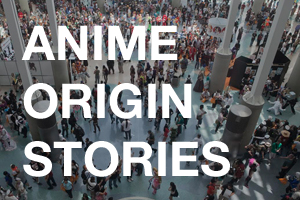What else is there to say about the most ridiculously popular show of the year?
Equal parts dark and hilarious, Attack on Titan toyed with our emotions by laying down primetime worthy plot twists. We still haven’t found out the secret that lies in Eren’s basement, but a steady stream of shocking reveals leaves us with even more pressing questions.
What fascinates me most about Attack on Titan is that its impressive popularity means it’ll be a gateway show into anime for hundreds, if not thousands of fans. Already I’m beginning to talk to budding fans who tell me Attack on Titan is the first anime they’ve ever seen.
In Anime Essentials: Every Thing a Fan Needs to Know, author Gilles Poitra theorizes that anime fandom occurs in waves, often sparked by one singular work. He calls them the “Astro Boy generation,” the “Akira generation,” the “Sailor Moon generation,” and so on. Every wave sets higher standards to what fans enjoy and expect out of a quality anime. And each notable work inspires an era of knockoff shows.
Plenty of writers have tackled the subject about what makes Attack on Titan so darn popular, but most agree on its strong character development, fast-paced plot, and epic stakes of life and death. And of course, there’s the Titans, a group of antagonists so formidable and yet so farcical as to make them unpredictable to even the most jaded audience.
These are the characteristics that will define how the “Attack on Titan generation” of fans determines the quality of a show. We’re going to see a lot of attempts with subsequent shows to capture its same success with similar methods.
But what I think this new wave of fans is looking forward to most of all? A season two.
This post is the eleventh installment of The Twelve Days Of Anime, a blogging series in which anime fans write about shows that inspired or impressed on them this year.
(Top illustration by Sauce via Pixiv).






8 Comments.
I’d love to see a season 2. But since I couldn’t wait, I’m already reading its manga.
@monmonkun, me too! I read it through Crunchyroll Manga.
And me three!
This show pretty much drove me insane.
When I think of gateway anime, I think of Naruto, Bleach, and One Piece. Naruto’s what brought me in, anyway, and that was only four and a half years ago. It’s weird to think of Attack on Titan as a gateway, even though it completely makes sense. Come to think of it, I’ve talked to one or two people who hadn’t watched much besides AoT. Part of me wonders if the new fans enamored with AoT will be willing to give older (and by that, I only mean 10 or 15 years older), less beautiful anime a try. I did, but when I started Naruto, the first ep was already almost ten years old. Then I remember: once I was truly sucked into the anime fandom, I wanted to try everything, including the shows that the much older fans still speak of fondly (read: 20+ years older). Unfortunately, those are harder for me to get ahold of.
If this show ever hits Toonami, then maybe it’ll be the ultimate gateway drug ever. Butttt I’ll hold off on saying that. Even despite some of the evidence (sales, for one thing) in front of me.
[…] Dec. 24 — Attack on Titan as a gateway drug […]
[…] part of the Toonami Generation of anime fans, sometimes known as the fourth wave of anime fandom. As a result, I came into the fandom with a pretty massive backlog, spanning the ‘70s, ‘80s, […]